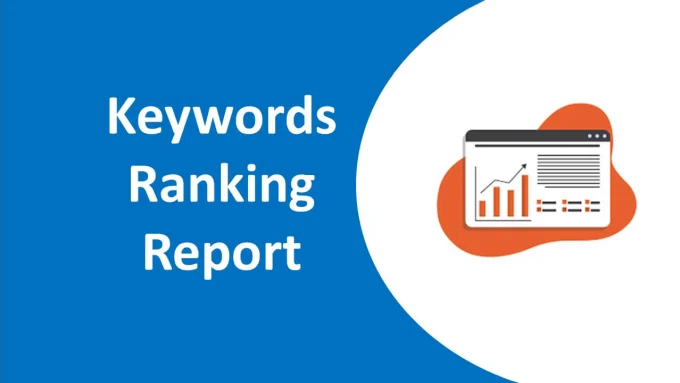In this article, we will look at the top 10 Essential SEO Ranking Factors why your site might not be ranking as well as it should in the search engines. This is an important topic because it can help you identify if there are any problems with your site.
A lot of people look down upon SEO and always talk about how it’s dead or how everything has changed since Google made all those changes. However, these days you need to know how to optimize your website for search engines if you want to get traffic from them.
Social Signals.
Signals from social networks are another way to tell Google that your site is popular. Social signals include likes, shares, comments and followers. The more social signals a page has the better it will rank in search engines like Google.
Social media websites like Facebook and Twitter have become an important part of our everyday lives. If you’re not using them yet then now might be a good time to start because they can help improve your SEO ranking too!
Content Quality.
One of the most important ranking factors is content quality. This is how well your content answers the questions of your users, and it’s one that can be hard to quantify. Good content is well-researched, well-written and relevant to the user’s query. It also provides value by giving them answers they didn’t know they needed or wanted until they read your article!
For example: If someone searches “how do I get rid of this rash?” then an answer like “wash with soap and water” doesn’t really solve their problem because it doesn’t tell them anything they didn’t already know (or at least suspect). On the other hand, if you have an in-depth article explaining exactly what causes rashes and how best to treat them–including information about different types of rashes as well as tips on preventing them from happening again–then Google will recognize that as being high quality content because it gives users exactly what they need rather than just repeating something obvious like “wash with soap.”
Backlinks.
Backlinks. The more backlinks you have to your site, the better it will rank in search results. But it’s not just quantity that matters–the quality of those links matters even more!
You want to make sure that when someone clicks on one of these links, they find what they were looking for and then come back again later (and probably bookmarked your site).
Mobile-Optimized Site Design.
While you can optimize your existing website to be mobile-friendly, it’s better to start with a new one that’s designed specifically for smartphones and tablets. A responsive design simply adapts the same layout across all devices, which means it may not work as well on smaller screens.
When designing your site, keep these things in mind:
- Make sure it loads quickly on mobile devices (under five seconds).
- Make sure it’s easy to navigate around the site with a touchscreen (touchscreens aren’t as accurate as mouse clicks). You may want some extra space around links so users don’t accidentally click off them when trying to scroll down through text or images on their phones or tablets; also consider adding zooming functionality if necessary for certain parts of your page layout (elements like maps or images could benefit from being able to zoom in/out).
- Ensure readability by using larger fonts and simpler language so people can easily understand what they’re reading without squinting too much!
On-Page Optimizations.
The process of optimizing your web pages to rank higher in search engine results pages (SERPs) is On-page optimization. This includes elements like:
- Title tags and meta descriptions. These are the elements at the top of your page that appear as clickable text for visitors. You should use them to describe what you offer, and make sure they match up with what people are searching for on Google or Bing. To get an idea of what your competitors are doing with their titles, check out Open Site Explorer’s “Page Title” tool (https://moz.com/opensiteexplorer).
- Keyword usage throughout content–especially in H1 headers, image alt tags and body copy–but don’t stuff too many keywords into any one place! The best way to find out how many times a keyword should be used? Check out SEMrush’s Keyword Density Analyzer tool (https://www2s3y6e2i6c5t6j7l8i5p0m9g7x8f6v1k4r3i5r0h1l0p9d8o9c6u3s0q7k3w2t4s2f6e1y
Local Citations And Location-Specific Keywords.
Once you’ve established a strong foundation for your website and its content, it’s time to start thinking about local citations. Local citations are important because they help search engines understand what type of business you are and where your customers are located.
Local citations are backlinks that include information like the name of your business, address, phone number, hours of operation and more. By including this information on third-party websites such as Yelp or TripAdvisor (just two examples), Google will be able to see which sites link back to yours–and that’s good news!
Adding these types of links can help improve rankings in local searches by increasing relevancy between users’ queries and the pages they land on after searching for something related; in turn improving their experience using those sites overall since most people tend not want spend much time looking around if nothing seems relevant enough for them at first glance.”
User Experience (Ux).
User Experience (UX) is the experience a user has when using your site. It’s important because it affects how users interact with your site, and how they interact with your site affects your site’s ranking.
The best way to improve UX is by testing different designs and content types until you find something that works well for both new visitors and returning visitors. You should also make sure that all of the pages on your website have unique URLs–don’t just use “/home” or “/about” as part of their names!
Google Authorship/Social Authorship And Google +1’s.
Google Authorship is a way for Google to recognize the author of the content, in order to help you rank higher in search results. If you have an active Google+ account, you can add your photo or logo on every post that you write on your website or blog as an author. This will help search engines understand who wrote each piece of content on your site and give it more value when showing up in search results.
Google +1’s are also important because they show how popular a page is with people who use Google products like Gmail, YouTube and Chrome (which means everyone). The more +1’s there are on a page means that there must be something good about it — so make sure all of yours have plenty!
Keyword Research, Keyword Targeting And Keyword Density Of Content On Your Site.
Keyword research is the foundation of SEO. It’s what you need to do before anything else if you want to rank well in search engines. This includes finding out what people are searching for and understanding their intent when they search for those terms.
Keyword targeting ensures your content matches relevant keywords, outperforming competitors using similar terms in their titles or text.
Look At Your Sites’s Rank
As you can see, there are many different ways to measure your site’s performance in the search engines. One of the most effective ways is by looking at its ranking in SERPs (search engine results pages). You should look at your site’s rank to see if there are any reasons it isn’t performing well. If your competitors rank higher on certain keywords, it might be time to make some changes!

Compare your site’s performance to competitors in your niche to determine if adjustments are needed. Competitors may have higher rankings due to effective strategies unique to them.
Conclusion
So, there you have it! 10 of the most important ranking factors for SEO. To improve your site’s performance or understand its Google ranking, start with this list. We hope these tips help with your next campaign. If we missed any, share them with us on Twitter!
Readmore : YouTube SEO: Optimizing Videos for Better Ranings and Engagement
FAQ’s
Recognizing these factors helps troubleshoot poor search engine rankings. SEO is pivotal for website traffic, and these insights ensure effective optimization.
Social signals are key SEO ranking factors which include likes, shares, comments, and followers. They indicate site popularity, leading to better search engine ranking. Utilizing platforms like Facebook and Twitter can enhance SEO.
High-quality content directly a seo ranking factor and addresses users’ queries, offering valuable answers. Well-researched and informative content earns better search engine recognition.
Mobile-friendly sites are essential for user experience and SEO. Quick loading, touchscreen navigation, and readable design contribute to better rankings.




